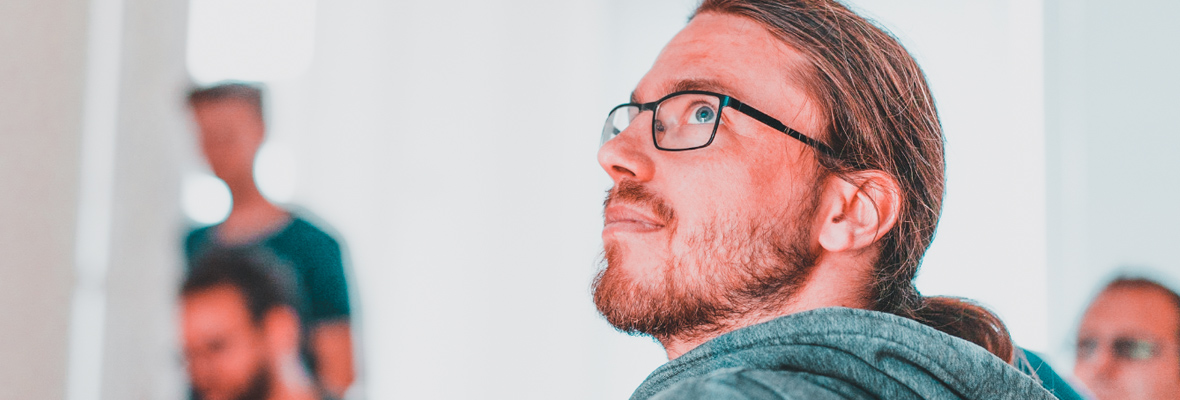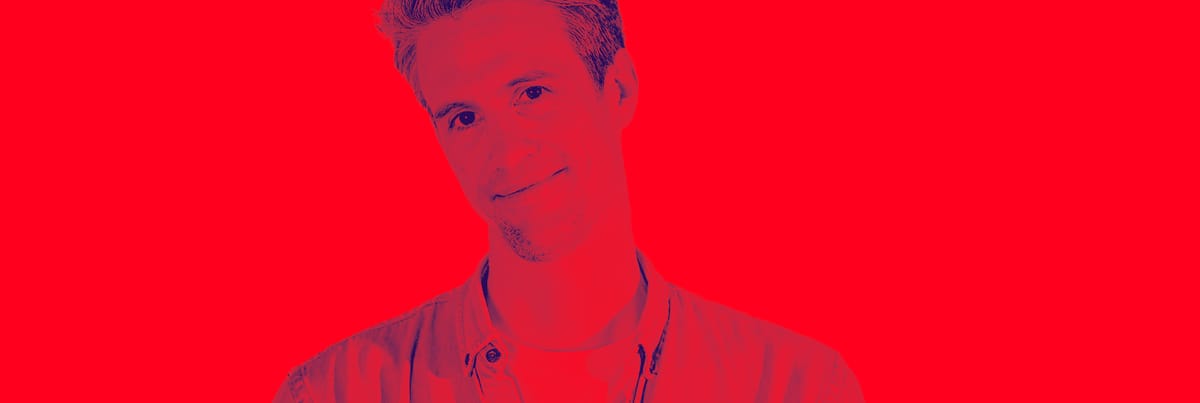I have a history of working in companies where you were expected to be in the office or at the client 95% of the time. Working at home or from another place was seen as ‘weird’. So switching to madewithlove, which advocates remote work, sounded fun and scary at the same time. My former colleagues, friends and family thought exactly the same thing. This post will try to answer the most common questions I get, when I tell people that I work remotely most of the time.
Is there a potential feeling of solitude? What is the key to catching the vibe and energy of the company/culture?
I love working with people, so this was indeed one of my main concerns about working remotely. Could I handle being ‘alone’? So far, it’s a lot easier than I thought it would be. Our Slack team is buzzing with activity all day long and I feel as if I’m in the office with them. There’s an extra perk to living in the HQ’s country. I get to visit the office twice a week and to meet some of my colleagues.
As regards the company’s vibe and energy, I do feel as if I am more ‘in’ the company now than I was while being a consultant previously. Because we work remotely here, there is a lot more communication happening on virtual platforms. Projects get discussed on Slack and are available for everyone to see. We also organise short Zoom video calls when something needs more in-depth explanations, while water-cooler conversation tends to move to dedicated channels. So I talk more with people outside my project team, than I would if I was co-located with a single team.

How do you handle not seeing or feeling emotions, as happens in a regular meeting?
It can be helpful to use video communication at times, to replicate a physical meeting as far as possible. I also believe in making life easier by being transparent and honest in every aspect of communication. This is something I try to bring to clients as well. So if I don’t understand everything, or people’s expectations are not the same, I keep asking questions until we are both on the same page. That means never ending a call while I still have questions or assumptions about something. Working remotely requires a little adjustment and it can take time to get used to it. But you ultimately develop the same ‘sixth sense’ that you rely on in face-to-face meetings.
Why is remote working so important?
Anyone living in Belgium knows how bad traffic can be during rush hours. By working remotely, you can save a lot of time that you would usually spend trapped in a long line of honking cars.
Secondly, remote working gets round the problem of finding employees with the right skills and attitude in your local area. That’s especially hard for a company that limits itself to a small radius around its office. At madewithlove, we currently have colleagues based in Argentina, Brazil, Canada, Madeira and France. This has an added benefit: we can help clients with support over a much longer working day, thanks to the range of time zones.
Because we are working with colleagues worldwide, the company does not insist that all we be online from 9am to 5pm. However it does require employees to be online at hours that have some overlap with the rest of the team – ideally with a half-day overlap. That’s why we have not (yet) hired people from Asia, because their overlap with Brazil would be hard… unless they worked crazy hours!
I try to finish my work somewhere between 8.30am and 5.30pm CET. When working at home, I do notice that my workday lasts longer, because there are other things to do. I can take a longer lunch break and go for a walk around the block, do a small errand by bike, make dinner before my wife gets home, go to the gym during less busy hours, and so on.
How do you align your expectations with those of remote colleagues?
We do this like in any office environment, by talking to each other until we are on the same page. Documentation plays a huge part in everything we do. If we take decisions on something, we make sure it is documented in meeting notes on Confluence (internal communication) or Basecamp (client communication). Most of our communication also happens in a group setting, such as over Slack channels or on Github for issues. Everyone then sees what is being discussed and decided.
The need for documentation is a big advantage of working remotely. In a traditional office environment, there is no great need to document every discussion or decision, because you can revisit the conversation whenever you want. But this practice can be time-consuming and usually ignores the fact that you need to update everyone on the team to make sure expectations are aligned.

Are you as productive as you’d be in an office?
I have the feeling that I produce more when I am not in the office. In an office environment, especially an open one, it’s too easy to get distracted by other colleagues or to have another meeting.
To avoid being distracted when working at home, I ensure that I work at my desk, not on the couch or at the table in our living room. This makes it easier for me to switch to a work context and to not waste time on all the other things one can do when at home. When I occasionally do work in the office, I wear my headphones so I can really focus on my work.
If you find all of this very interesting, but do not know where to start, try reading Jason Fried’s book ‘REMOTE: Office Not Required’ or simply contact us at madewithlove. We’ll be delighted to show you how remote working can work.
And if you still think “Well that’s all fine for madewithlove, but it would never work for us”, you’re still welcome to contact us for a friendly chat. 😉







Member discussion